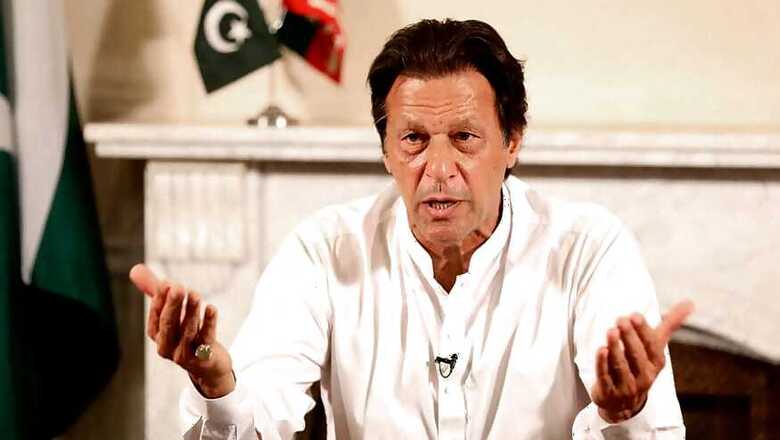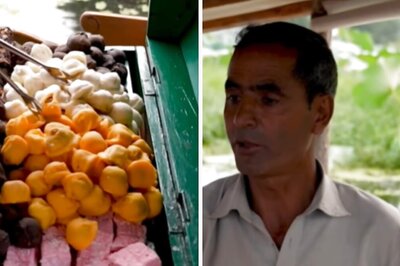
views
Peshawar: Imran Khan said on Monday that he will take oath as Pakistan's Prime Minister on August 11, even as his Pakistan Tehreek-e-Insaf party was striving to get required numbers to form its government.
The PTI, led by 65-year-old Khan, has emerged as the single largest party in the National Assembly after the July 25 elections, but it is still short of numbers to form the government on its own. Khan's party on Sunday announced that it is trying to reach out to smaller parties and independents to form the next government.
Khan said he will take oath as Prime Minister on 11th of next month (August), Radio Pakistan reported.
"I have also decided about chief minister of Khyber Pakhtunkhwa which I will announce in the next 48 hours. Whatever I have decided in this regard is in the best interest of people," he said while addressing PTI members of provincial assembly in Khyber-Pakhtunkhwa province.
In Khyber-Pakhtunkhwa, the PTI has won a two-thirds majority by bagging 65 seats in the assembly of 99 members.
He said alleviation of poverty from interior Sindh will be among top priorities of his government.
On Saturday, PTI spokesman Naeemul Haque told reporters that the party chief will take oath as the prime minister before August 14.
Haque said that he hoped the president would call an assembly session and Khan would take oath as premier before the Independence day.
Although the PTI has emerged as the single largest party in the National Assembly after the polls, the final results issued by the Election Commission of Pakistan show that the party is still short of numbers to form its government independently.
According to the results, the PTI has bagged 116 general seats 22 short of simple majority whereas the PML-N and PPP have won 64 and 43 seats, respectively.
Pakistan's National Assembly comprises a total of 342 members, of which 272 are directly elected. A party can only form the government if it manages to clinch 172 seats in total.
To meet the required number of votes, the PTI leadership has reportedly been approaching the Muttahida Qaumi Movement-Pakistan (MQM-P), the Grand Democratic Alliance (GDA), PML-Quaid (PML-Q), and the Balochistan Awami Party (BAP), as well as independents.
Meanwhile, two main parties - Pakistan Muslim League-Nawaz and Pakistan Peoples Party - have agreed on formulation of a "coordinated joint strategy" if the PTI manages to form its government at the centre.
The understanding on cooperation was reached during the first direct meeting between the leaders of the PML-N and PPP after the general elections here on Sunday.
"It was an ice-breaker," said PML-N's Mushahid Hussain Sayed, when asked about the outcome of the meeting. "It was a very good meeting and you can call it a meeting of the minds."
He said that there was complete unanimity of views between the two main parties that the "July 25 elections have been stolen".
The PPP delegation comprised former prime minister Yousuf Raza Gilani, Sherry Rehman, Qamar Zaman Kaira and Farhatullah Babar while the PML-N side was represented by Mushahid Hussain Sayed, Ayaz Sadiq, former prime minister Shahid Khaqan Abbasi and Sardar Mahtab Ahmed Khan.
Later, the PPP leaders also held talks with Jamiat Ulema-i-Islam (JUI-F) chief Maulana Fazlur Rehman, who also heads the MMA, and tried to persuade him to reverse his decision of boycotting parliament.
Since the MMA has 12 seats, the combined seats of the PPP, PML-N and MMA become 117 two more than Khan's party.
















Comments
0 comment